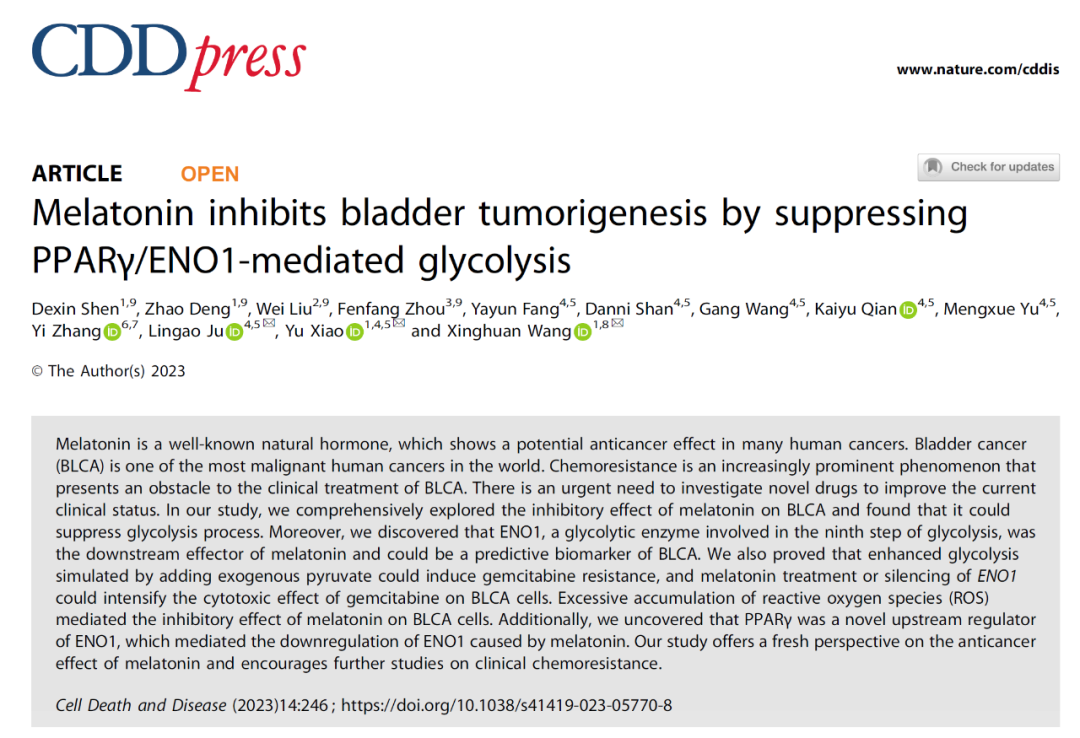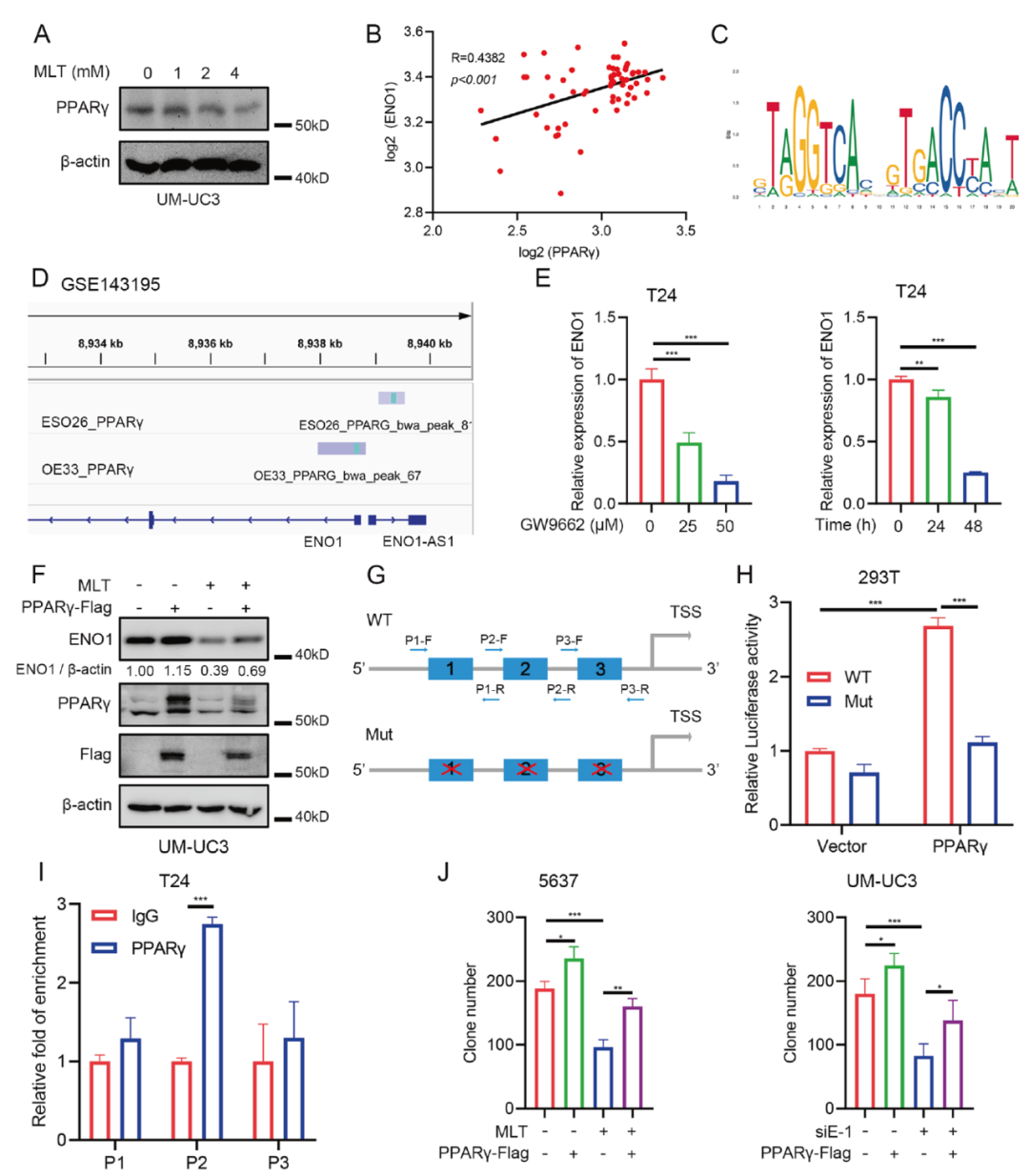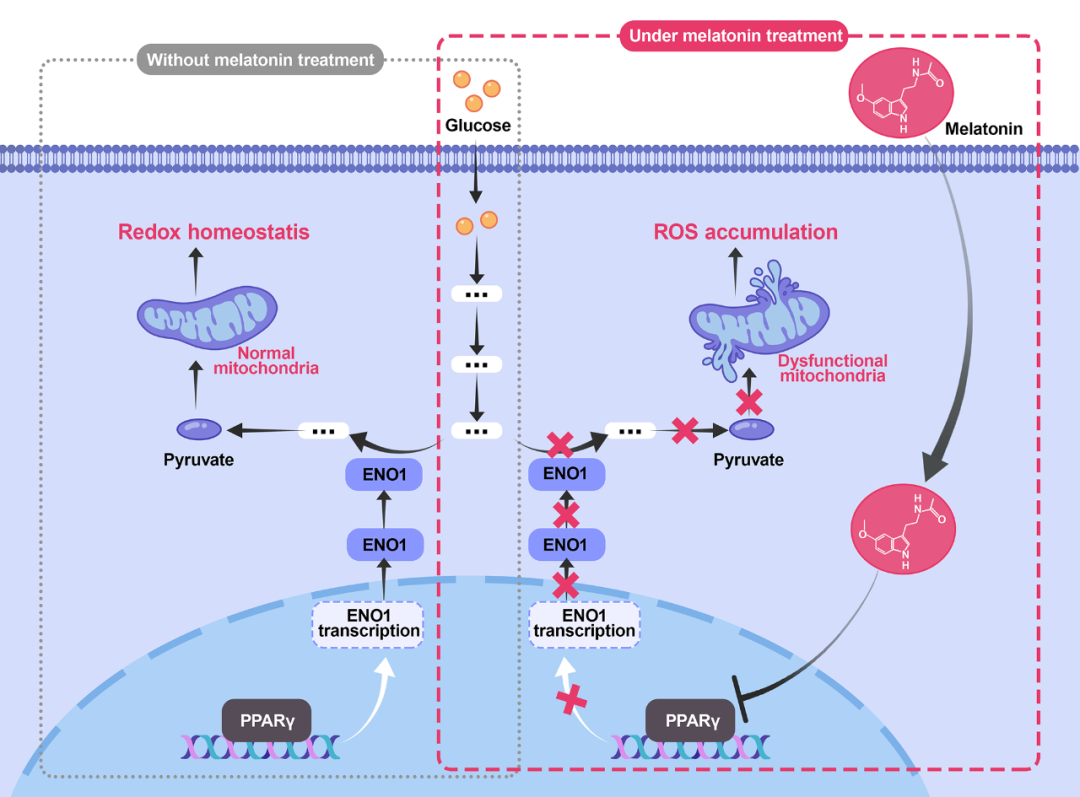

On April 6, 2023, Professor Wang Xinghuan's team from the Department of Urology at Zhongnan Hospital of Wuhan University published their latest research findings at Cell Death&Disease (TOP 1 Region of the Chinese Academy of Sciences), titled "Melatonin inhibits bladder tumorigenesis by suppressing PPARγ/ENO1-mediated glycolysis"[1]. This study found that melatonin can inhibit the proliferation and migration of bladder cancer cells by inhibiting PPARγ-ENO1-mediated glycolysis, thus providing a new theoretical basis for further revealing the anticancer effect of melatonin.

In previous studies, a review paper of our research group has comprehensively discussed the inhibitory effect of melatonin on human prostate cancer[2]. After the publication of this review paper, the research team received a positive email from Professor Reiter R. J., an authoritative expert in the field of melatonin research and the founding editor of the top journal of melatonin research, Journal of Pineal Research. Professor Reiter pointed out that reprogramming the metabolic patterns of tumor cells is a potential mechanism for melatonin to exert anti-cancer effects. This suggestion points out an important research direction for the research team to further study the inhibitory effect of melatonin on bladder cancer.
In this study, after initially determining that melatonin can effectively inhibit the proliferation and migration ability of bladder cancer cells, the research group found that the expression of genes related to glycolysis pathway in bladder cancer cells showed a downward trend after melatonin treatment through high-throughput sequencing and bioinformatics analysis. The detection of pyruvate, an important end metabolite of glycolysis, also showed that the content of pyruvate in bladder cancer cells decreased significantly after melatonin treatment, and the inhibitory effect of melatonin on bladder cancer could be effectively weakened by supplementing pyruvate. The research group also found that enolase-α (ENO1), which catalyzed the ninth step of glycolysis, was the only metabolic enzyme that showed a gradient decline in the expression of bladder cancer cells after melatonin treatment and was related to the progression of bladder cancer disease and patient prognosis. Co-silencing and overexpression experiments confirmed that ENO1 mediated melatonin treatment to inhibit the proliferation and migration of bladder cancer cells.

The research team further carried out mechanism research: Through the analysis of String database and GEO database, it was found that the metabolic regulatory molecule PPARγ, which plays an important role in the occurrence and development of bladder cancer, may be a new and unreported upstream transcription factor of ENO1. Chromatin immunoprecipitation and dual luciferase reporter gene experiments confirmed that PPARγ can bind to ENO1 promoter region to regulate ENO1 transcription. Overexpression of PPARγ or use of PPARγ agonist rosiglitazone can effectively restore the inhibition of ENO1 by melatonin treatment.
In addition, the study demonstrated that the enhancement of glycolytic activity played an important role in the resistance of bladder cancer cells to gemcitabine chemotherapy. The use of melatonin or the silencing of ENO1 expression further amplified the cytotoxic effect of gemcitabine by reducing the glycolytic activity of bladder cancer cells, which laid a theoretical foundation for the clinical application of melatonin in the future.
In general, this study revealed a new mechanism of melatonin's anti-cancer effect, enriched the anti-cancer spectrum of melatonin, and discovered a new molecular marker for bladder cancer, providing a new idea for the development of new chemotherapy drugs and molecular diagnosis of bladder cancer. The first author of this paper is Shen Dexin, a doctoral student in the Department of Urology at Zhongnan Hospital of Wuhan University. The project was supported by the National Natural Science Foundation of China, Hubei Provincial Department of Science and Technology and Zhongnan Hospital of Wuhan University.

References:
[1] Shen D, Deng Z, Liu W, et al. Melatonin inhibits bladder tumorigenesis by suppressing PPARgamma/ENO1-mediated glycolysis [J]. Cell Death Dis, 2023, 14(4): 246.
[2] Shen D, Ju L, Zhou F, et al. The inhibitory effect of melatonin on human prostate cancer [J]. Cell Commun Signal, 2021, 19(1): 34.
Links:
https://www.nature.com/articles/s41419-023-05770-8